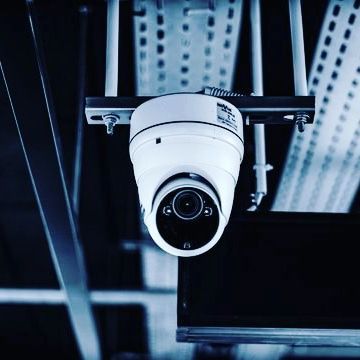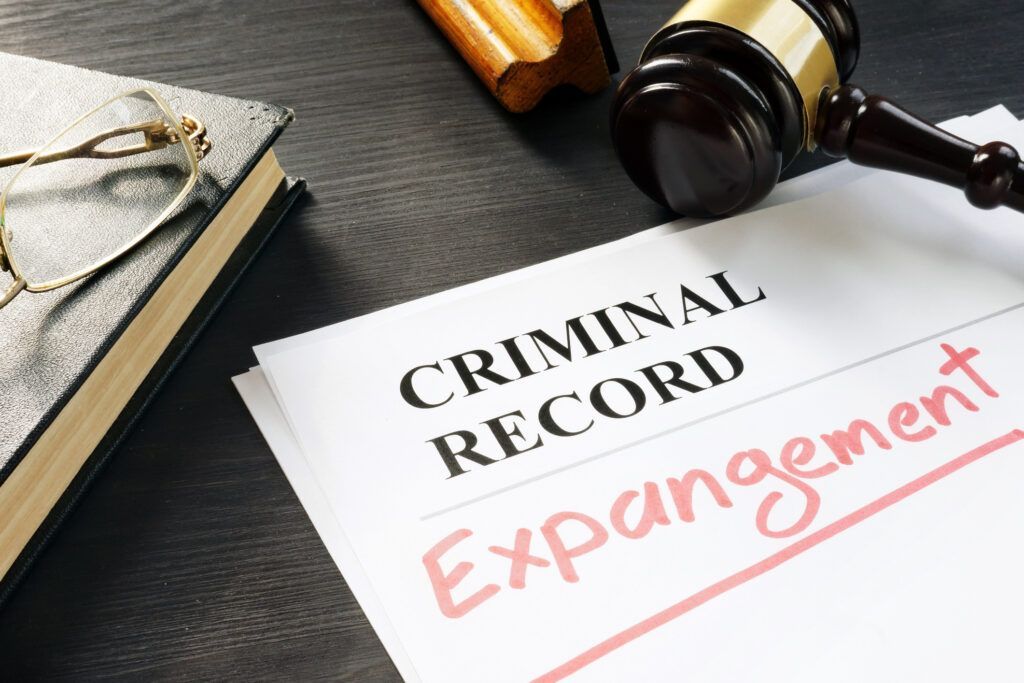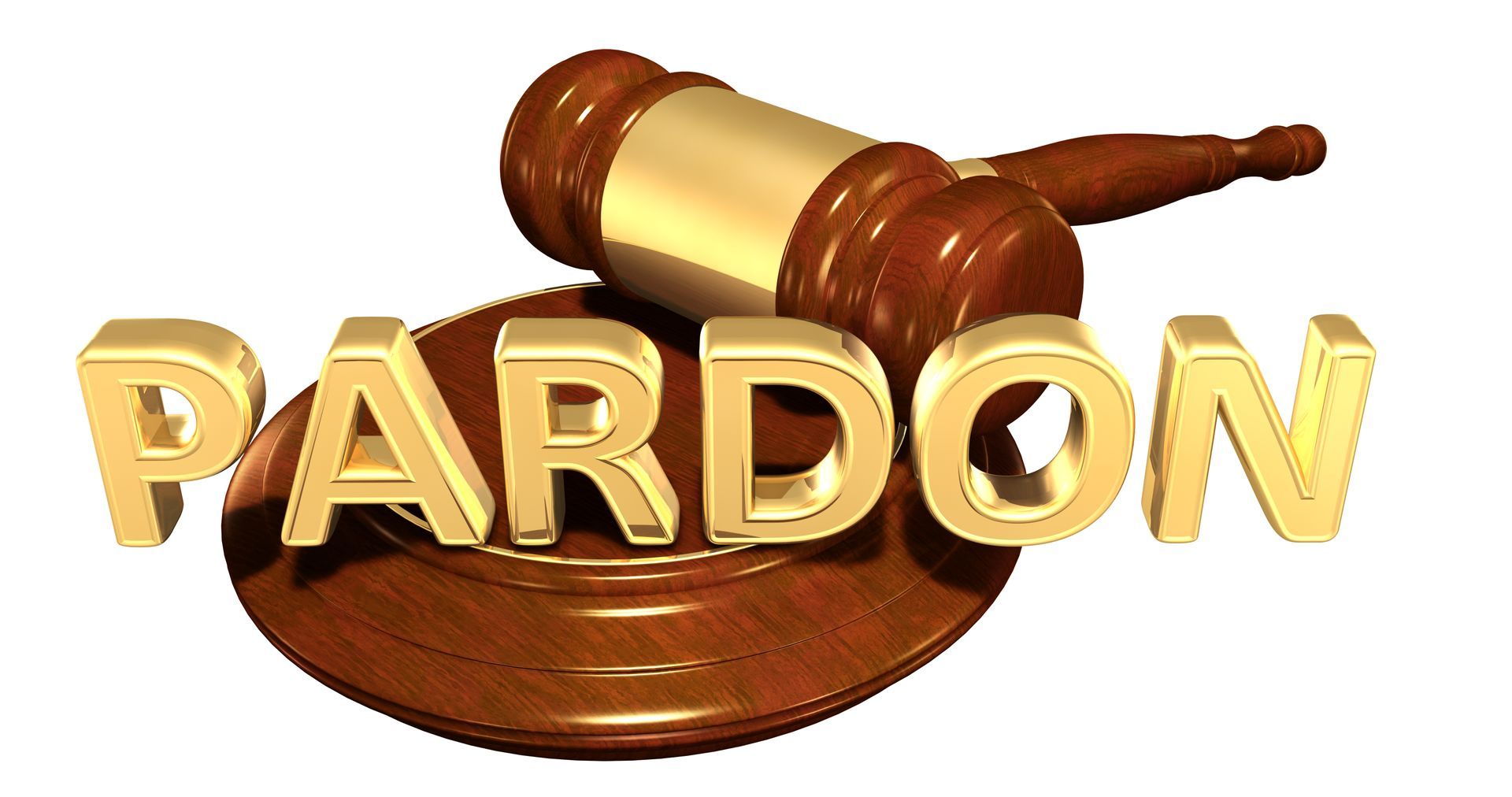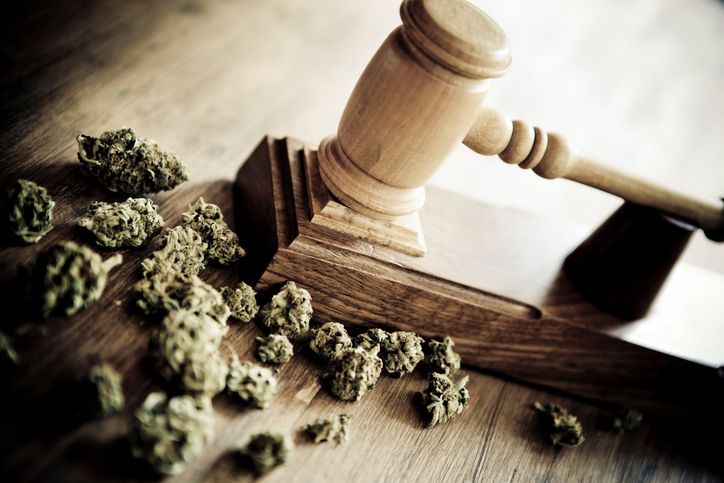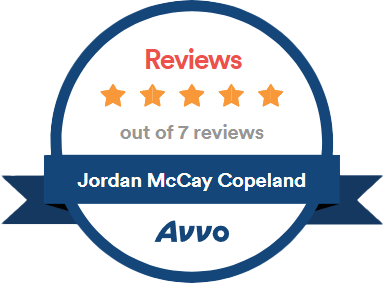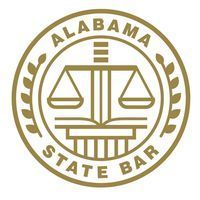Some Misdemeanor Convictions are Now Eligible for Expungement in Alabama
Effective July 1, 2021, some misdemeanor convictions are eligible for expungement in Alabama. With the new expanded Alabama Expungement law comes the eligibility for many new types of charges / convictions to now be eligible for an expungement under Alabama law. In this blog post we will focus on Misdemeanor Convictions Expungement in Alabama. Specifically, what Alabama misdemeanor convictions may now be eligible for expungement in Alabama.
Keep in mind, alternatively, if you had any prior misdemeanor or felony charge that did not result in a conviction in Alabama, it may be eligible for expungement under the expanded Alabama Expungement law, if the other statutory criteria are met.
Misdemeanor Convictions Must Meet These Factors to be Eligible for an Expungement in Alabama
Misdemeanor Convictions Expungement in Alabama can clear an eligible misdemeanor conviction from your criminal background to the extent of the Alabama Expungement Law. Subsection (b) of 15-27-1 of the Code of Alabama is the first portion of substantial expansion of eligibility with the new 2021 Alabama Expungement Law. This subsection makes certain misdemeanor and violation convictions eligible for expungement as long as certain factors a met. This subsection states in pertinent part:
“ … [A] person who has been convicted of a misdemeanor offense, a violation, a traffic violation, or a municipal ordinance violation may file a petition … to expunge records relating to the charge and the conviction if all of the following occur:
(1) Except as provided in Section 15-27-4, all probation or parole requirements have been completed, including payment of all fines, costs, restitution, and other court-ordered amounts, and are evidenced by the applicable court or agency.
(2) Three years have passed from the date of conviction.
(3) The person was not operating a commercial vehicle at the time and convicted of any of the offenses enumerated in 49 C.F.R. § 383.51
(4) The conviction is not a violent offense, as provided in Section 12-25-32
(5) The conviction is not a sex offense, as provided in Section 15-20A-5
(6) The conviction is not an offense involving moral turpitude, as provided in Section 17-3-30.1. This subdivision does not apply if the crime the person was convicted of was classified as a felony at the time of the conviction, but has been reclassified as a misdemeanor, pursuant to Act 2015-185, and the person has not been arrested for any offense, excluding minor traffic violations, 15 years prior to the filing of the petition for expungement.
(7) The conviction is not a serious traffic offense, as provided in Article 9 of Chapter 5A of -Title 32. …” Section 15-27-1(b) Ala. Code. (emphasis added).
All Probation / Parole Completed, all Court-Ordered Monies Paid, and Three (3)+ Years passed since the Conviction.
Most notably, many misdemeanor and violation convictions are now eligible for expungement in Alabama if all court ordered monies are paid in full and at least three (3) years have passed from the date of the conviction. A conviction can be either a finding of guilty after a trial or a plea of guilty accepted by the Judge.
Convictions of any charge in 49 CFR 383.51 while a person was driving a Commercial Motor Vehicle are not Eligible to Petition for an Expungement
Misdemeanor and violation convictions that are not eligible for expungement under the new Alabama Expungement Law include first, (3) above. This section will apply to Commercial Driver’s License (“CDL”) drivers if you were operating a commercial motor vehicle (“CMV”) at the time of the offense in Alabama and convicted of any of the following offenses as detailed in 49 Code of Federal Regulations Section 383.51, below, then your case is not eligible for expungement in Alabama:
“… (1) Being under the influence of alcohol as prescribed by State law. …
(2) Being under the influence of a controlled substance. …
(3) Having an alcohol concentration of 0.04 or greater while operating a CMV. …
(4) Refusing to take an alcohol test as required by a State or jurisdiction under its implied consent laws or regulations as defined in § 383.72 of this part. …
(5) Leaving the scene of an accident. …
(6) Using the vehicle to commit a felony, other than a felony described in paragraph (b)(9) of this table. …
(7) Driving a CMV when, as a result of prior violations committed operating a CMV, the driver’s CLP or CDL is revoked, suspended, or canceled, or the driver is disqualified from operating a CMV. …
(8) Causing a fatality through the negligent operation of a CMV, including but not limited to the crimes of motor vehicle manslaughter, homicide by motor vehicle and negligent homicide. …
(9) Using the vehicle in the commission of a felony involving manufacturing, distributing, or dispensing a controlled substance. …
(10) Using a CMV in the commission of a felony involving an act or practice of severe forms of trafficking in persons, as defined and described in 22 U.S.C. 7102(11). …
(11) Speeding excessively, involving any speed of 24.1 kmph (15 mph) or more above the regulated or posted speed limit. …
(12) Driving recklessly, as defined by State or local law or regulation, including but, not limited to, offenses of driving a motor vehicle in willful or wanton disregard for the safety of persons or property. …
(13) Making improper or erratic traffic lane changes. …
(14) Following the vehicle ahead too closely. …
(15) Violating State or local law relating to motor vehicle traffic control (other than a parking violation) arising in connection with a fatal accident. …
(16) Driving a CMV without obtaining a CLP or CDL. …
(17) Driving a CMV without a CLP or CDL in the driver’s possession.
(18) Driving a CMV without the proper class of CLP or CDL and/or endorsements for the specific vehicle group being operated or for the passengers or type of cargo being transported. …
(19) Violating a State or local law or ordinance on motor vehicle traffic control prohibiting texting while driving a CMV. …
(20) Violating a State or local law or ordinance on motor vehicle traffic control restricting or prohibiting the use of a hand-held mobile telephone while driving a CMV. …
(21) The driver is not required to always stop, but fails to slow down and check that tracks are clear of an approaching train. …
(22) The driver is not required to always stop, but fails to stop before reaching the crossing, if the tracks are not clear. …
(23) The driver is always required to stop, but fails to stop before driving onto the crossing. …
(24) The driver fails to have sufficient space to drive completely through the crossing without stopping.
(25) The driver fails to obey a traffic control device or the directions of an enforcement official at the crossing. …
(26) The driver fails to negotiate a crossing because of insufficient undercarriage clearance. …
(27) Violating a driver or vehicle out-of-service order while transporting nonhazardous materials. …
(28) Violating a driver or vehicle out-of-service order while transporting hazardous materials as defined in § 383.5, or while operating a vehicle designed to transport 16 or more passengers, including the driver. … “ 49 C.F.R. § 383.51
The Misdemeanor Conviction must not be a “violent offense”, as provided in Section 12-25-32
Next, under (b)(4) of Section 15-27-1 of the new 2021 Alabama Expungement Law, convictions
of a misdemeanor or violation defined as a “violent offense” under Alabama law, section 12-25-32, are not eligible for expungement. The list of “violent offenses” according to Alabama Code Section 12-25-32 are the following criminal charges in Alabama:
“… VIOLENT OFFENSE. a. For the purposes of this article, a violent offense includes each of the following offenses, or any substantially similar offense to those listed in this subdivision created after June 20, 2003:
1. Capital murder pursuant to Sections 13A-6-2 and 13A-5-40.
2. Murder pursuant to Section 13A-6-2.
3. Manslaughter pursuant to Section 13A-6-3.
4. Criminally negligent homicide pursuant to Section 13A-6-4.
5. Assault I pursuant to Section 13A-6-20.
6. Assault II pursuant to Section 13A-6-21.
7. Compelling street gang membership pursuant to Section 13A-6-26.
8. Kidnapping I pursuant to Section 13A-6-43.
9. Kidnapping II pursuant to Section 13A-6-44.
10. Rape I pursuant to Section 13A-6-61.
11. Rape II pursuant to Section 13A-6-62.
12. Sodomy I pursuant to Section 13A-6-63.
13. Sodomy II pursuant to Section 13A-6-64.
14. Sexual torture pursuant to Section 13A-6-65.l.
15. Sexual abuse I pursuant to Section 13A-6-66.
16. Enticing a child to enter a vehicle for immoral purposes pursuant to Section 13A-6-69.
17. Stalking pursuant to Section 13A-6-90.
18. Aggravated stalking pursuant to Section 13A-6-91.
19. Soliciting a child by computer pursuant to Section 13A-6-110.
20. Domestic violence I pursuant to Section 13A-6-130.
21. Domestic violence II pursuant to Section 13A-6-131.
22. Burglary I pursuant to Section 13A-7-5.
23. Burglary II pursuant to Section 13A-7-6.
24. Burglary III pursuant to subdivision (1) or subdivision (2) of subsection (a) of Section 13A-7-7.
25. Arson I pursuant to Section 13A-7-41.
26. Criminal possession of explosives pursuant to Section 13A-7-44.
27. Extortion I pursuant to Section 13A-8-14.
28. Robbery I pursuant to Section 13A-8-41.
29. Robbery II pursuant to Section 13A-8-42.
30. Robbery III pursuant to Section 13A-8-43.
31. Pharmacy robbery pursuant to Section 13A-8-51.
32. Terrorist threats pursuant to Section 13A-10-15.
33. Escape I pursuant to Section 13A-10-31.
34. Promoting prison contraband I pursuant to Section 13A-10-36, involving a deadly weapon or dangerous instrument.
35. Intimidating a witness pursuant to Section 13A-10-123.
36. Intimidating a juror pursuant to Section 13A-10-127.
37. Treason pursuant to Section 13A-11-2.
38. Discharging a weapon into an occupied building, dwelling, automobile, etc., pursuant to Section 13A-11-61.
39. Promoting prostitution I pursuant to Section 13A-12-111.
40. Production of obscene matter involving a minor pursuant to Section 13A-12-197.
41. Trafficking pursuant to Section 13A-12-231.
42. Child abuse pursuant to Section 26-15-3.
43. Elder abuse pursuant to Section 38-9-7.
44. Terrorism pursuant to Section 13A-10-152.
45. Hindering prosecution for terrorism pursuant to Section 13A-10-154.
46. Domestic violence III pursuant to subsection (d) of Section 13A-6-132.
47. Domestic violence by strangulation or suffocation pursuant to Section 13A-6-138.
48. Human trafficking I pursuant to Section 13A-6-152.
49. Human trafficking II pursuant to Section 13A-6-153.
50. Hindering prosecution in the first degree pursuant to Section 13A-10-43.
51. Any substantially similar offense for which an Alabama offender has been convicted under prior Alabama law or the law of any other state, the District of Columbia, the United States, or any of the territories of the United States.
b. The basis for defining these offenses as violent is that each offense meets at least one of the following criteria: 1. Has as an element, the use, attempted use, or threatened use of a deadly weapon or dangerous instrument or physical force against the person of another. 2. Involves a substantial risk of physical injury against the person of another. 3. Is a nonconsensual sex offense. 4. Is particularly reprehensible.
c. Any attempt, conspiracy, or solicitation to commit a violent offense shall be considered a violent offense for the purposes of this article.
d. Any criminal offense which meets the criteria provided in paragraph b. enacted after 2003. “ Ala. Code § 12-25-32 (1975)
The vast majority of the “violent offenses” provided in 12-25-32 (above) are felony offenses, not misdemeanor offenses. For example, If you were convicted of a misdemeanor Domestic Violence, 3 rd degree – Harassment, said misdemeanor is not listed as a “violent offense” under 12-25-32. Therefore, it is eligible to petition for an expungement under the new Alabama Expungement law. Feel free to contact our Alabama Expungement Law Office if you have specific questions about the eligibility of your case.
Misdemeanor Convictions of “sex offenses” are not eligible for Expungement in Alabama
Next, subsection (b)(5) of Section 15-27-1 in the new 2021 Alabama Expungement Law excludes
from eligibility convictions of misdemeanors or violations defined as a “sex offenses” in Alabama Code Section 15-20A-5 are not eligible for expungement. Feel free to review 15-20A-5, Code of Alabama from an internet search to review the specific “sex offense” convictions that are not eligible for an Alabama Expungement. If your misdemeanor conviction was not a sex related offense, continue down the list of factors for eligibility.
A Misdemeanor Conviction “involving moral turpitude” as provided in 17-3-30.1 is not eligible for Expungement in Alabama.
Next, subsection (b)(6) of Section 15-27-1 in the new 2021 Alabama Expungement Law convictions of misdemeanors or violations “involving moral turpitude as provided in Section 17-3-30.1.” are not eligible for expungement. The good news is essentially all the charges listed in 17-3-30.1 “involving moral turpitude” are not misdemeanors, they are felonies. Therefore, your misdemeanor conviction likely does not “involve moral turpitude” to make it ineligible. Below are the charges under Alabama law 17-3-30.1 that “involve moral turpitude”:
The following are crimes “involving moral turpitude” in Section 17-3-30.1:
“ (c) … (1) Murder as defined in the following sections: a. Subdivision (1) of subsection (a) of Section 13A-5-40. b. Subdivision (2) of subsection (a) of Section 13A-5-40. c. Subdivision (3) of subsection (a) of Section 13A-5-40. d. Subdivision (4) of subsection (a) of Section 13A-5-40. e. Subdivision (5) of subsection (a) of Section 13A-5-40. f. Subdivision (6) of subsection (a) of Section 13A-5-40. g. Subdivision (7) of subsection (a) of Section 13A-5-40. h. Subdivision (8) of subsection (a) of Section 13A-5-40. i. Subdivision (9) of subsection (a) of Section 13A-5-40. j. Subdivision (10) of subsection (a) of Section 13A-5-40. k. Subdivision (11) of subsection (a) of Section 13A-5-40. l. Subdivision (12) of subsection (a) of Section 13A-5-40. m. Subdivision (13) of subsection (a) of Section 13A-5-40. n. Subdivision (14) of subsection (a) of Section 13A-5-40. o. Subdivision (15) of subsection (a) of Section 13A-5-40. p. Subdivision (16) of subsection (a) of Section 13A-5-40. q. Subdivision (17) of subsection (a) of Section 13A-5-40. r. Subdivision (18) of subsection (a) of Section 13A-5-40. s. Subdivision (19) of subsection (a) of Section 13A-5-40. t. Section 13A-6-2.
(2) Manslaughter as defined in Section 13A-6-3.
(3) Assault as defined in Section 13A-6-20 [Assault, 1 st Degree], except for subdivision (5) of subsection (a)[Assault, 1 st Degree causing serious physical injury with a motor vehicle while intoxicated] of Section 13A-6-20, and Section 13A-6-21[Assault, 2 nd Degree].
(4) Kidnapping in the first degree as defined in Section 13A-6-43.
(5) Kidnapping in the second degree as defined in Section 13A-6-44.
(6) Rape as defined in Sections 13A-6-61[Rape, 1 st Degree] and 13A-6-62[Rape, 2 nd Degree].
(7) Sodomy as defined in Sections 13A-6-63 and 13A-6-64.
(8) Sexual torture as defined in Section 13A-6-65.1.
(9) Sexual abuse as defined in Sections 13A-6-66, 13A-6-67, and 13A-6-69.1.
(10) Enticing a child to enter a vehicle for immoral purposes as defined in Section 13A-6-69.
(11) Facilitating solicitation of unlawful sexual conduct with a child as defined in Section 13A-6-121.
(12) Electronic solicitation of a child as defined in Section 13A-6-122.
(13) Facilitating the on-line solicitation of a child as defined in Section 13A-6-123.
(14) Traveling to meet a child for an unlawful sex act as defined in Section 13A-6-124. (15) Facilitating the travel of a child for an unlawful sex act as defined in Section 13A-6-125.
(16) Human trafficking as defined in Sections 13A-6-152 and 13A-6-153.
(17) Terrorism as defined in Section 13A-10-152.
(18) Soliciting or providing support for an act of terrorism as defined in Section 13A-10-153.
(19) Hindering prosecution of terrorism as defined in Section 13A-10-154.
(20) Endangering the water supply as defined in Section 13A-10-171.
(21) Possession, manufacture, transport, or distribution of a destructive device or bacteriological or biological weapon as defined in Section 13A-10-193.
(22) Selling, furnishing, giving away, delivering, or distribution of a destructive device, a bacteriological weapon, or biological weapon to a person who is less than 21 years of age as defined in Section 13A-10-194.
(23) Possession, manufacture, transport, or distribution of a detonator, explosive, poison, or hoax device as defined in Section 13A-10-195.
(24) Possession or distribution of a hoax device represented as a destructive device or weapon as defined in subsection (c) of Section 13A-10-196.
(25) Attempt to commit an explosives or destructive device or bacteriological or biological weapons crime as defined in Section 13A-10-197.
(26) Conspiracy to commit an explosives or destructive device or bacteriological or biological weapons crime as defined in Section 13A-10-198.
(27) Hindrance or obstruction during detection, disarming, or destruction of a destructive device or weapon as defined in Section 13A-10-199.
(28) Possession or distribution of a destructive device or weapon intended to cause injury or destruction as defined in Section 13A-10-200.
(29) Treason as defined in Section 13A-11-2.
(30) Dissemination or public display of obscene matter containing visual depiction of persons under 17 years of age involved in obscene acts as defined in Section 13A-12-191.
(31) Possession and possession with intent to disseminate obscene matter containing visual depiction of persons under 17 years of age involved in obscene acts as defined in Section 13A-12-192.
(32) Parents or guardians permitting children to engage in production of obscene matter as defined in Section 13A-12-196.
(33) Production of obscene matter containing visual depiction of persons under 17 years of age involved in obscene acts as defined in Section 13A-12-197.
(34) Distribution, possession with intent to distribute, production of obscene material, or offer or agreement to distribute or produce , as defined in Section 13A-12-200.2.
(35) Trafficking in cannabis, cocaine, or other illegal drugs or trafficking in amphetamine and methamphetamine as defined in Section 13A-12-231.
(36) Bigamy as defined in Section 13A-13-1.
(37) Incest as defined in Section 13A-13-3.
(38) Torture or other willful maltreatment of a child under the age of 18 as defined in Section 26-15-3.
(39) Aggravated child abuse as defined in Section 26-15-3.1.
(40) Prohibited acts in the offer, sale, or purchase of securities as defined in Section 8-6-17.
(41) Burglary as defined in Sections 13A-7-5 and 13A-7-6.
(42) Aggravated theft by deception as defined in Section 13A-8-2.1.
(43) Theft of property as defined in Sections 13A-8-3 and 13A-8-4.
(44) Theft of lost property as defined in Sections 13A-8-7 and 13A-8-8.
(45) Theft of trademarks or trade secrets as defined in Section 13A-8-10.4.
(46) Robbery as defined in Sections 13A-8-41, 13A-8-42, and 13A-8-43.
(47) Forgery as defined in Sections 13A-9-2 and 13A-9-3.
(48) Any crime as defined by the laws of the United States or by the laws of another state, territory, country, or other jurisdiction, which, if committed in this state, would constitute one of the offenses listed in this subsection.
Some Prior Felony Convictions that were reclassified to Misdemeanors under Alabama Act 2015-185 may now be eligible for Expungement
Further, for misdemeanor conviction eligibility, the subsection (b)(6) exclusion “… does not apply if the crime the person was convicted of was classified as a felony at the time of the conviction, but has been reclassified as a misdemeanor, pursuant to Act 2015-185, and the person has not been arrested for any offense, excluding minor traffic violations, 15 years prior to the filing of the petition for expungement.” Section 15-27-1(b)(6). Specifically, under Act 2015-185, SB67, the following crimes that were previously felonies in Alabama and were reclassified as misdemeanors include the following:
Section 13A-8-5 Theft of property in the fourth degree. Class A Misdemeanor
Section 13A-8-9 Theft of lost property in the fourth degree. Class A Misdemeanor
Section 13A-8-10.3 Theft of services in the fourth degree. Class A Misdemeanor
Section 13A-8-19 Receiving stolen property in the fourth degree. Class A Misdemeanor
Section 13A-9-4 Forgery in the fourth degree. Class A Misdemeanor
Section 13A-9-7 Criminal possession of forged instrument in the fourth degree. Class A Misdemeanor
Prior to Act 2015-185, the above charges were classified as “Third Degree” Class C Felony charges. Therefore if prior to Act 2015-185 becoming law you were charged and convicted of any of the above crimes in the “Third Degree” as a felony, that crime has been reclassified as a misdemeanor and may be eligible to petition for an expungement under the 2021 Alabama Expungement Law, if the other criterion of this statute is met.
Convictions of “Serious Traffic Offenses” are not eligible for an Expungement in Alabama
Next, subsection (b)(7) of Section 15-27-1 in the new 2021 Alabama Expungement Law convictions of misdemeanors or violations classified as “serious traffic offense”, as provided in Article 9 of Chapter 5A of Title 32 of the Code of Alabama are not eligible for expungement. The following are “serious traffic offenses” as defined under Alabama law:
Section 32-5A-190 – Reckless driving
Section 32-5A-190.1 – Homicide by vehicle
Section 32-5A-191 – Driving while under influence [DUI] of alcohol, controlled substances, etc.
Therefore, DUI, Reckless Driving, and Homicide by Vehicle convictions in Alabama are not eligible for expungement under the expanded Alabama Expungement law. Misdemeanor Convictions Expungement in Alabama may include the following common convictions, among others: Possession of Marijuana, 2nd degree, some Domestic Violence, 3rd degree convictions, Public Intoxication, Reckless Endangerment, Attempting to Allude Law Enforcement, Possession of Drug Paraphernalia,
However, keep in mind in this blog post we are only detailing what misdemeanor / violation convictions are eligible for expungement. If you previously had any misdemeanor charge that resulted in some form of a non-conviction (dismissed, nolle prossed, found not guilty, etc.) that charge and arrest record can be eligible for expungement no matter the charge.
Our Alabama Expungement Law Office has been representing clients in the Petition for Expungement Process in Alabama since Alabama’s first expungement law was passed in 2014. Alabama Expungement Lawyer, Jordan M. Copeland is experienced in preparing strong petitions for expungement custom to each client highlighting the positive details with the grounds for and reasons why each client’s petition for expungement should be granted by the Court. We have an excellent reputation as an experienced Alabama Expungement Law Office with 5 Star Google and AVVO Rankings by former clients.
Alabama Expungement Lawyer, Jordan Copeland has an excellent reputation of representing career focused people, pursuing petitions for expungement in Alabama, to help achieve their career goals with a clear background report to the extent of the Alabama Expungement Law. Many of our former clients are licensed legal, medical, real estate, finance, accounting, and other professionals.
If you have a prior misdemeanor conviction in Alabama that your believe may be eligible for an expungement, feel free to call or email our law office to discuss your case further. If we determine your case is eligible, we will give you a flat fee attorney’s fee quote in writing before representation begins. A strong principle of our Alabama Expungement Law Office is client communication is key. We will keep you updated with your case every step of the way, via email, phone, text, and/or U.S. Mail. Feel free to email us at: Jordan@ExpungementAlabamaLawyer.com or call our law office at: (256) 378-6087 or (205) 924-3839.
“Do not let your past arrest handcuff your future career.” — Jordan M. Copeland, Alabama Expungement Lawyer
The post Misdemeanor Convictions Expungement in Alabama appeared first on Expungement Alabama Lawyer.
